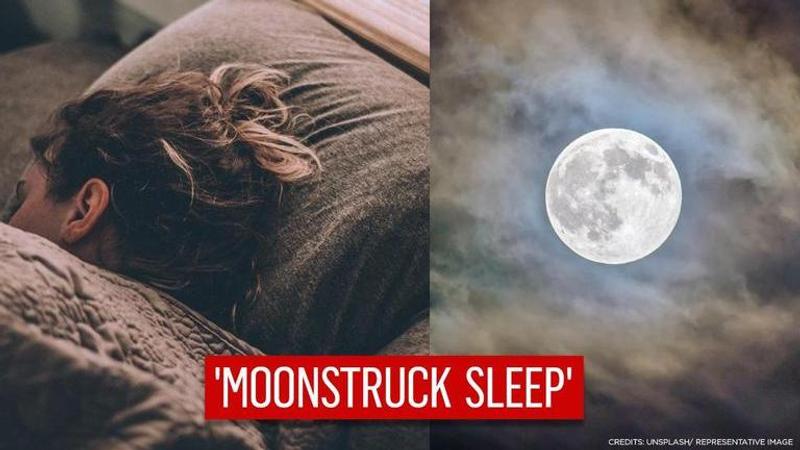Published 14:47 IST, January 31st 2021
Phases of Moon could affect sleeping patterns in humans, says study
The moon dictates the pushes and pulls of the tides, but a recent study published in Science Advances revealed that it could also affect our sleep.

The moon dictates the pushes and pulls of the tides, but a recent study published in Science Advances revealed that it could also affect our sleep. According to the study, people go to bed later and sleep less on a full moon night. The researchers had volunteers from Argentina’s indigenous communities wear sleep trackers for up to two months in order to track their sleep habits. The data compared the sleep data gathered from over 450 residents of Seattle and 100 people from the indigenous community.
Different sleeping patterns
As per the study, on average, participants went to bed 30 minutes later and slept 50 minutes less on nights before a full moon. The study attempted to determine the differences in sleep patterns based on moonlight and since the full moon and days leading up to it are the brightest nights, it makes sense that the indigenous people - some of whom had no or limited access to electricity - stayed up later on nights with a bright moon and slept almost an hour less than other nights of the month. Amazingly, the study also concluded that people from Seattle, despite having access to artificial light in so many forms, also exhibited different sleeping patterns based on the lunar phase, which takes 29.5 days to complete.
While speaking to CNN, lead author of the research, Leandro Casiraghi said that the fact that this modulation was present even in communities with full access to electric light suggests that these effects are mediated by something other than moonlight itself. The director of Sleep Basic Research, Dr. Vsevolod Polotsky, also added that people’s biology and a community’s social patterns might play a role in the sleep cycle found in this study.
Polotsky explained that people’s sleep is controlled by circadian rhythm, which is an internal clock that regulates sleep for about a 24-hour period. But the professor added that some people could have longer internal clocks. The researchers also believe that social calendars might also affect someone’s sleep schedules, such as going to bed later or sleeping longer on weekends.
Updated 14:47 IST, January 31st 2021



